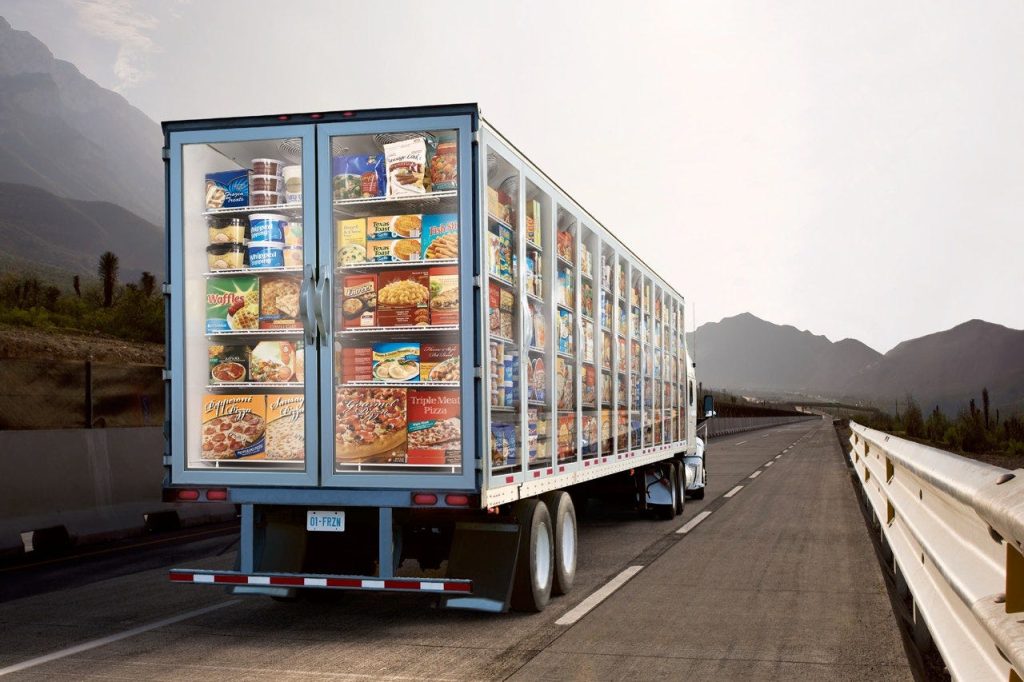As global demand for fresh food and temperature‑sensitive products continues to soar, the United Arab Emirates is strategically positioning itself as a major hub in cold chain logistics. Forecasts now indicate that the UAE’s cold chain logistics market is set to nearly double between 2024 and 2033—rising from approximately USD 1.4 billion in 2024 to USD 2.9 billion by 2033, growing at a steady compound annual growth rate (CAGR) of around 8 %.
What’s Driving This Surge?
1. Import dependency and rising consumer expectations
The UAE imports much of its perishable food, from fresh produce to dairy and seafood. Coupled with rising disposable incomes and a desire for quality and freshness, this dynamic amplifies demand for reliable, temperature‑controlled logistic.
2. Booming e‑commerce and food delivery
Online grocery shopping and home delivery platforms are flourishing, requiring efficient cold chain systems to maintain freshness from warehouse to doorstep. This rapid expansion of last‑mile refrigerated services is a powerful growth catalyst.
3. Expanded infrastructure and strategic logistics hubs
The UAE government continues to pour investments into cold storage at key logistics nodes like Jebel Ali Port, Dubai Industrial City, Abu Dhabi’s Khalifa Port, and rail links like Etihad Rail. Partnerships between global operators (Americold, DP World, RSA Cold Chain, Maersk) are accelerating development of new multi‑temperature warehouses and ultra low‑temperature complexes.
Tech Transformation in the Cold Chain
The UAE is integrating cutting-edge technologies to boost efficiency, visibility, and sustainability:
– IoT sensors and RFID tracking enable real‑time temperature readings and predictive alerts, helping prevent spoilage and maintain compliance.
– AI and data analytics optimize warehouse space, routing decisions, and maintenance schedules for optimal performance and cost saving.
– Blockchain-based traceability solutions are gaining traction, especially in pharmaceutical logistics, to verify cold-chain integrity from origin to delivery.
Automation technologies—like robotic palletizers, automated storage and retrieval systems (AS/RS), and automated guided vehicles—are reshaping operations in refrigerated facilities, reducing human error and raising throughput.
Sustainability Gains Urgency
Energy-intensive refrigerated transport and storage come at a steep environmental cost. In response, the industry is shifting toward greener solutions—solar-assisted cold rooms, electric refrigeration trucks, sustainable packaging, and green-certified facilities. This is in line with the UAE’s broader environmental goals and increasing consumer awareness.
Pharmaceuticals and Vaccine Distribution
COVID‑19 underlined the critical need for robust cold chain capabilities. In the UAE, specialized facilities for vaccine storage and pharmaceutical logistics are being built with ultra‑strict monitoring and multi‑aging chambers. Partnerships between Etihad Cargo, airports, and local logistics companies support global vaccine distribution to markets across Africa and Asia.
Key Challenges Ahead
- High operating costs and energy consumption
Maintaining sub-zero environments in arid climates is costly. Operators face pressure to reduce energy usage and find efficient cooling methods. - Infrastructure disparities between Emirates
While Dubai and Abu Dhabi benefit from world-class facilities, smaller emirates still lag behind in modern cold storage and transport connectivity. - Fragmentation and lack of skilled talent
The sector remains fragmented, with many mid‑sized operators lacking deep technical expertise. There is a growing need for skilled professionals trained in digital cold chain technologies and compliance management.
What’s Next: Growth Outlook and Strategic Opportunities
– From perishable food to pharmaceuticals, the UAE cold chain industry is expected to nearly double, reaching USD 2.9 billion by 2033.
– Continued regional leadership hinges on strengthening public‑private partnerships, expanding free‑zone offerings (JAFZA, KEZAD, DIC), and embracing green and digital innovation.
– Companies that combine robust infrastructure, traceable technology platforms, and sustainability practices will likely win long‑term contracts with retailers, food brands, exporters, and healthcare stakeholders.
Takeaway Insights
– The UAE is emerging as a cornerstone of cold chain logistics, with healthy projected growth and expanding strategic capacity.
– Tech trends like IoT, AI, blockchain, and automation are redefining how cold supply chains get monitored and managed.
– Sustainable innovations are becoming essential—not optional—due to environmental and cost pressures.
– The healthcare logistics sector, especially pharmaceuticals and vaccines, is a fast‑growing segment demanding high precision.
– While investment and sophistication are uneven across the Emirates, leading hubs are forging ahead with world-class facilities.
In sum, the UAE’s cold chain sector is experiencing a compelling rise—driven by import reliance, consumer demand, tech adoption, and infrastructure expansion. For logistics providers, agri‑food companies, and pharma exporters, this presents both opportunities and challenges. Navigating rising costs, compliance, and technological complexity will be critical—but so will partnerships that align capabilities with the UAE’s ambitious vision for food security and global logistics leadership.

